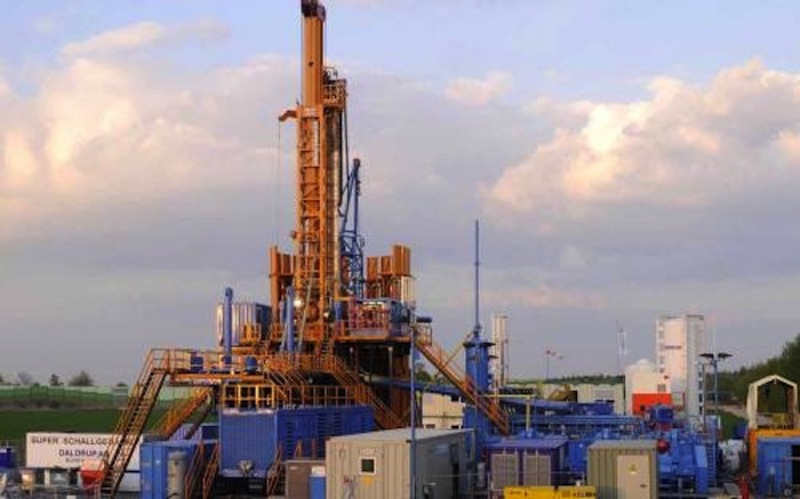Give geothermal energy a fair chance in the Netherlands – a recent opinion piece

With a recently published report on geothermal energy and its risk, the State Supervision on Mines in the Netherlands draws some criticism – so the sector and others are asking for a fair chance for geothermal energy in the country.
The question if geothermal energy development is save nor not, seems to be much discussed in the Netherlands. A recent report by the Inspector General for State supervision on Mines on the state of geothermal energy draws a rather critical picture.
“Geothermal energy is a sustainable form of energy, but also global warming must be safeguarded for human and environment,” concludes Harry van der Meijden, Inspector General of State Supervision on the Mines (SODM) on the State of Geothermal Energy. Many risks of drilling for geothermal energy are similar to those in the oil and gas sector. The geothermal sector could learn from it. But the relatively young and small and small-scale sector has difficulty mobilizing, applying and ensuring the necessary expertise and experience for subsequent projects. The sector has a weak security culture, safety and environmental risks are generally insufficiently recognized and controlled; And laws and regulations are not met properly.”
… clearly an observation that cannot be left uncommented, as it seems to be too critical. In an opinion piece Remco de Boer – a publicist in the field of energy transition provides his take, which can be read here below in translation.
The conclusions of the SODM in their first report on the geothermal sector do imply: environmental and safety risks are insufficiently recognized, laws and regulations are not being properly respected and thus the safety of man and the environment is insufficient. No “geothermist” has an approved recovery plan and the number of violations and incidents increases. Go ahead.
Report
As hard as the conclusions were, so lukewarm were the comments on the report. Remarkably because many risks, such as earthquakes and chemical leakage, are similar to those in gas extraction. If the report had gone further – with the same conclusions – then Lower House and nature and environmental organizations had their backs.
The sector itself responded. The problems were not denied, but above all the facts that the sector has to grow up. Only ten years young and with only fourteen systems in operation – the most used by greenhouse operators who know everything about bell peppers and potted plants, but a lot less of mining – is still paying a lot [on building that experience] That’s what SODM sees. Hence their report, aimed precisely at helping the industry through this difficult puberty.
Recommendations
That’s what the chairman of the glasshouse horticulture department of LTO Nederland saw differently. Although SODM reports twelve concrete recommendations – five to the sector, seven for the Ministry of Economic Affairs – he shot on Twitter: “Does SODM also help solutions or will they only be in criticism of innovation?” Attack is the best defense, he must have thought. Whether he had read the report [is unclear].
That this can be seen also works, is shown by the politics in [the city of] Groningen. Since 2014, the city has been working on a plan to connect some 10,000 homes to geothermal heat. This year, drilling could start. The report came as a surprise to the city council, so they said. But at the same time, they also said that the [report does not change their plans].
Safety
But one of SODM’s most sophisticated advice is just to keep plans in light of potentially less secure or unsafe areas, such as the province of Groningen because of gas extraction, to see if the risks are acceptable. Geothermal can cause earthquakes itself, but may also affect gas jams. SODM therefore sees a liability dilemma: who is responsible for [in case something happens]?
Instead of scratching the ears extensively and openly – residents can read the public report – the parties immediately placed themselves behind the city council and responsible councilor Gijsbertsen (GroenLinks). It was especially SODM that got criticism. According to the City Party, the supervisor rules the fear, and the PvdA even found the attitude of SODM to be “inappropriate”.
Transition
And so, Groningen unintentionally confirmed the image that SODM has of politicians and directors. In their urge for green energy, they stimulate geothermal energy, without being aware of the risks. For many politicians, the report is mainly a cold shower on their sustainable ambitions. And then you respond or shrug, or irritated, or just not.
Precisely because geothermal energy can play a major role in the energy transition, SODM attracts the bell. That should appreciate fans. Because one major calamity, one leakage of chemicals or a blowout, could even mean the end to geothermal heat in a polarized climate in which an energy species can even fall without ever leaving the starting blocks, such as shale gas.
Risks
Not only does the sector have to grow up, it also applies to everyone who develops and provides geothermal heating. It cannot be that a regulator warning of the challenges of fossil-fuel energy generation, cannot warn on the risks of the application of renewable energy technologies.
Like all energy sources, there are also some risks in geothermal development. The regulator needs to control, but there is no reason not to get started with the rollout of geothermal heat. But risks must be recognized, that also applies to the concerns that inhabitants in the vicinity of a geothermal well will undoubtedly get.
Source: Dagblad Noorden, SODM (both sources in Dutch)